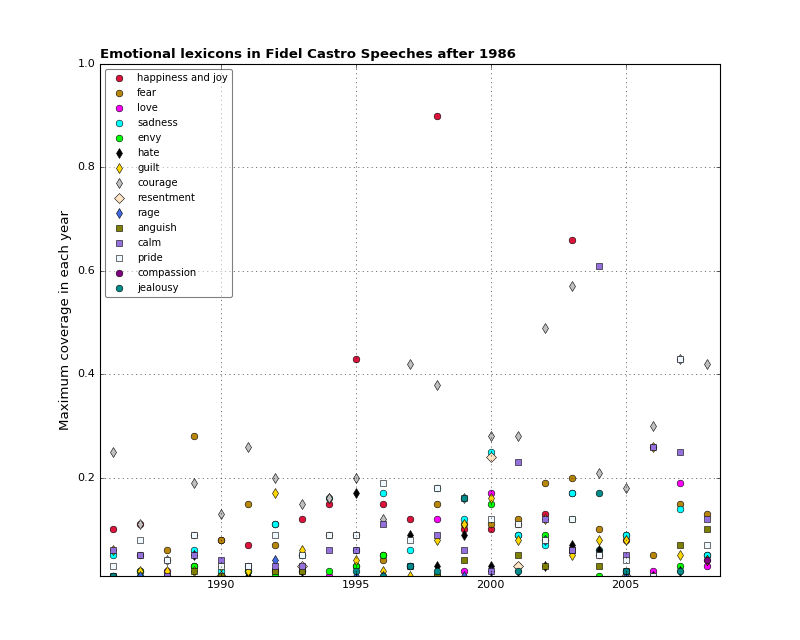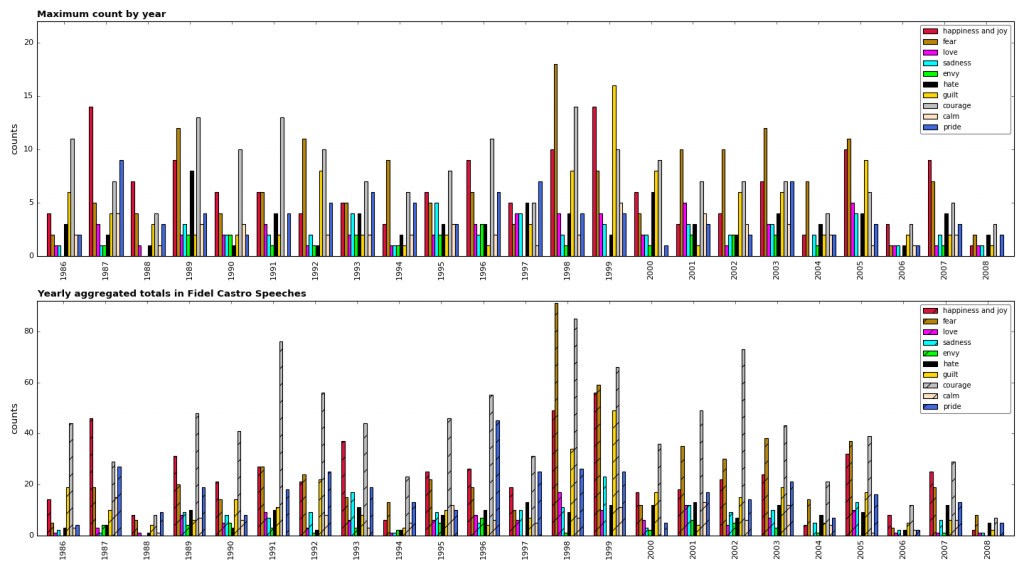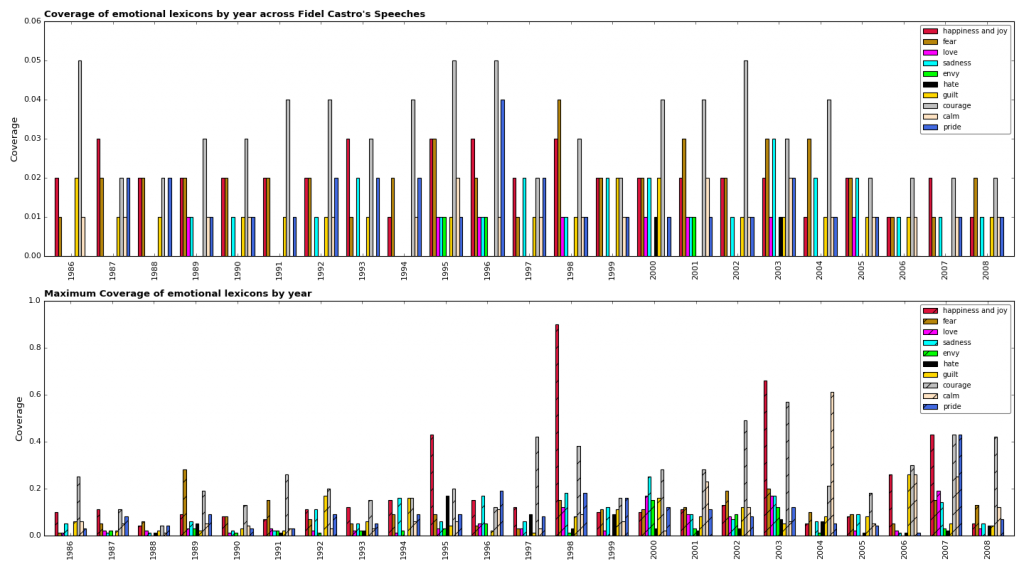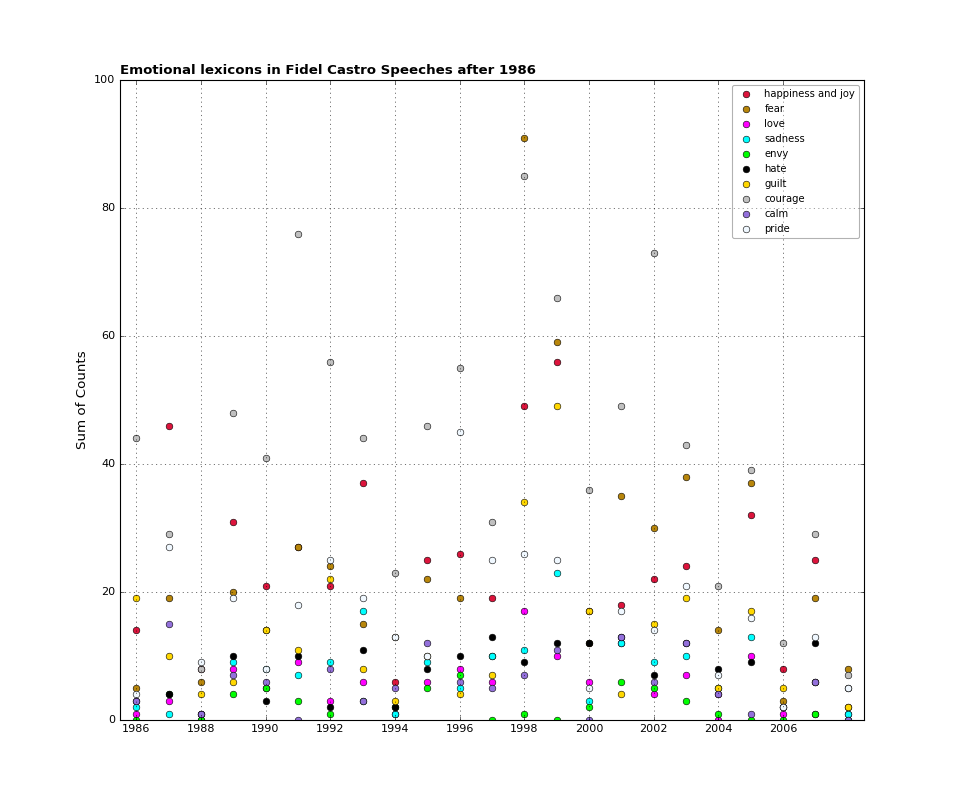From 1986 to 1994, years in Cuba stopped being named after an event; they ceased having a topic to simply state how many years after 1959 had passed. That is, 1987, was the 29th year of the Revolution, 1988 was the 30th, and so on. Since this usage misses the original topical christening, I am at the moment developing a way of establishing via emotional lexicons “the year of” for each year between 1987 and 2008, overwriting the names given for those after 1994. The graphs below are designed for exploratory purposes and show an initial attempt to find what is unique in each year in terms of the use of emotional lexicons in Fidel Castro's speeches. Since all communication media is owned by the state, it can be said that there is a sort of captive audience. Lately Univision is part of the options that many citizens with access to the dollar economy have, but in the 1990s the options were fewer.
The maximums, I argue, conform to highly memorable events since there is a higher chance of perceiving the emphasis put in a particular emotion, together with the event it is linked to. This facilitates the next step of going “back to the source” and reviewing which events were endowed with a special emotional signification. That is, identifying and evaluating those landmarks in the history of emotions ascribed to the nation. Speeches
It is notorious the spike in fear in 1998 and the peak in the use of the guilt lexicon, not previously predominant. Until 1991 the top totals for emotions alternate between happiness and courage and between 1991 and 1996 the alternating emotions are fear and courage. 1997 breaks the monotony with pride and in 2007 happiness makes a come back.
For a selection of excerpts of highly emotionally loaded speeches go to concordances
Coverage is defined as the percentage of total words that match each of the categories. The graph below shows maximum coverage in another manner, in it I expanded the number of emotional lexicons displayed.

The maximum coverage for 2004 needs further clarification, it is very high simply because the relevant text is very short. The text however marks an important event, and therefore, I consider it as belonging to the corpus of political discourse at hand. It comprises a short note Fidel Castro requested be written for him after his fall in 2004. The time is stamped in it: 3:14 AM. In it he asks the Cuban people to remain calm, and he underlines his good health as well. He asserts that he will continue being part of the State’s and the political party’s direction.
I gave it a try to this type of graph for counts too.


